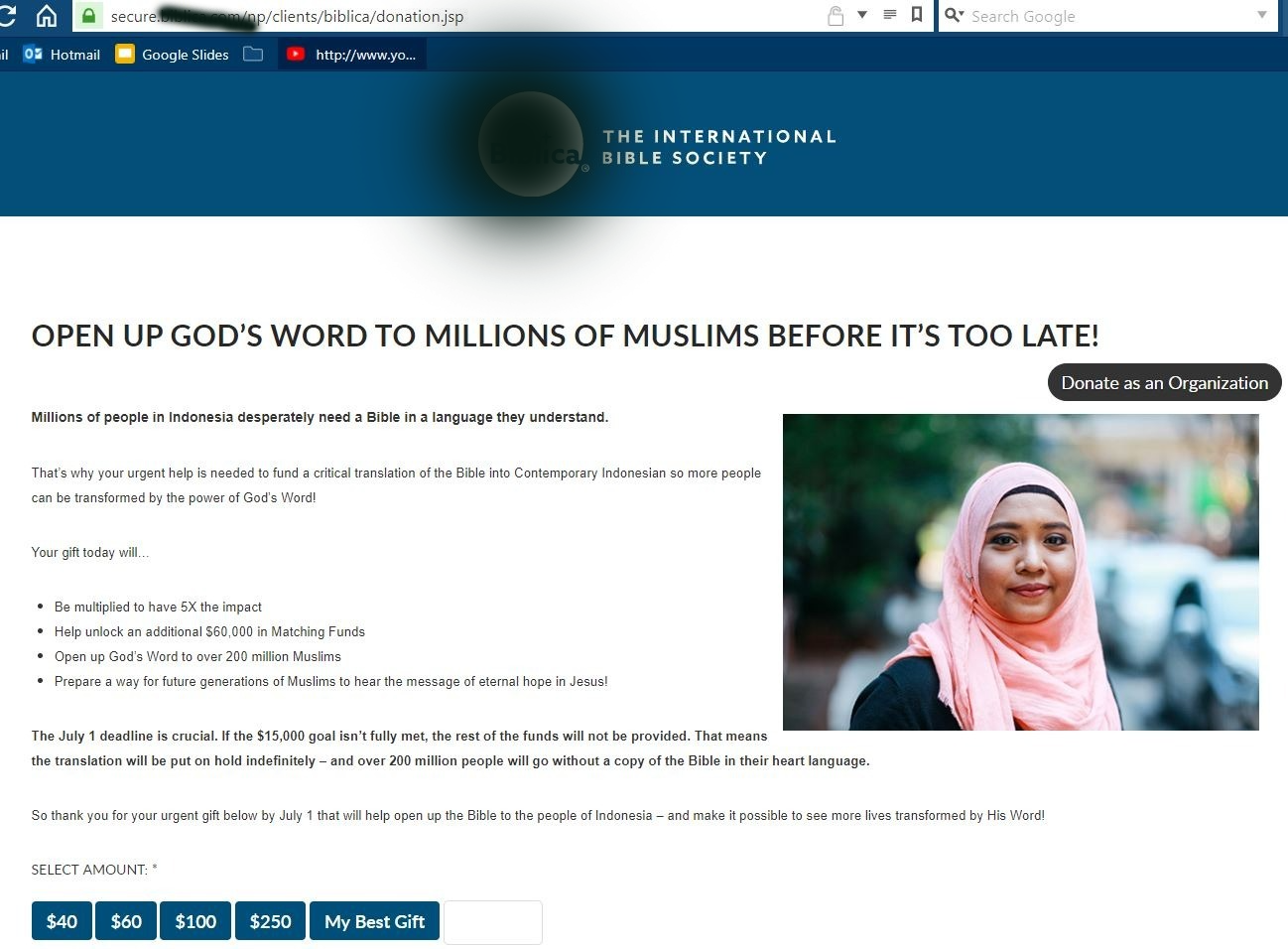Audio Version
According to Britannica, Islamophobia means fear, hatred, and discrimination against followers of Islam or the Islamic religion as a whole. The term appeared as “Islamophobie” in French literature in the early 20th century as a designation for anti-Muslim sentiments and policies and was popularized in English in the late 1990s. Islamophobia is a type of xenophobia, or fear of foreigners or foreign things. Some scholars have argued that it should be considered synonymous with anti-Muslim racism, since the effects of Islamophobia on the lives of individual Muslims and the attitudes of those holding Islamophobic views are closely comparable to those that result from racism.
If we look back in history, we will find that the anti-Islam and anti-Muslim movement is not something new. The first anti-Islam and anti-Muslim acts started just after the Prophet Muhammad ﷺ announced to his tribe, Quraysh, that he is a prophet from Allah (God) for them to quit worshiping the idols and worship the one and only God, Allah.
The Quraysh leaders fought against Islam primarily because the new religion threatened their economic power and social
standing in Makkah. There were 360 idols around the Kaaba in Makkah. Idol worshipers who lived in Makkah used to sacrifice
and give gifts to those idols while worshiping them. Idol worshipers from other tribes used to make a pilgrimage to Makkah,
and during their stay, they spent a lot of money buying goods and idols made by the Makkahn people.
Basically, many Makkahns, and mainly their ruler’s wealth, depended on the idol worshipers who came yearly in the pilgrimage
season to worship the 360 idols around the Kaaba.
Islam's message of monotheism drove the Quraysh leaders to be fearful of the loss of both their leadership and the wealth
they gathered through the pilgrims’ constant visitation to Makkah to worship the 360 idols around the Kaaba.
Another reason that bothered the Quraysh, particularly the wealthy leaders among them, was that the message of Islam
calls for equality between people regardless of their color, nationality, or wealth. This was a great concern for the
Quraysh leaders because they thought of themselves as superior in comparison to the slaves they owned, poor people,
and other people in general.
Therefore, the Quraysh leaders tried to resist the message of Islam in order to secure their wealthy economic status
and their social status. Quraysh leaders started harassing early Muslims, including ridicule, social boycotts, and
eventually physical persecution. The difficult situation of the Muslims in Makkah forced them, after 13 years of suffering,
to migrate to Medina, seeking safety and the freedom to practice their new religion.
Afterward, the Quraysh leaders, seeing many people joining the new religion of Islam, waged war with their allies against the
Prophet Muhammad ﷺ and his followers in hopes of ending the message of Islam. History reported that all of these wars failed to
end Islam or even kill the Prophet Muhammad ﷺ.
The Quraysh leaders worked hard to dissuade people from believing in the Prophet Muhammad’s ﷺ message by spreading false rumors,
hoping to drive people away from Islam. They claimed that the Prophet Muhammad ﷺ was a liar, that he copied the Qur'an from
Jewish books, that the Qur'an was not from God, and that the Prophet Muhammad ﷺ received the Qur'an from Satan, along with other
false accusations.
DOES THIS SOUND FAMILIAR?
These are the same rumors that those opposers of Islam use generation after generation. In spite of their efforts to discredit or dismantle Islam, a massive number of people convert to Islam every day after uncovering the copious evidence that led to convincing them that Islam is the only true religion.

These are the same rumors that those opposers of Islam use generation after generation. In spite of their efforts to discredit or dismantle Islam, a massive number of people convert to Islam every day after uncovering the copious evidence that led to convincing them that Islam is the only true religion.


Audio Version
Present-day Islamophobia has its roots in medieval anti-Islamic and anti-Muslim sentiment propagated by
the Christian Church prior to and during the Crusades (1096–1291).
Christian Apologetics
Christian apologetics is the branch of Christian theology that seeks to provide a rational defense and explanation of the Christian faith. It aims to answer questions and objections that people may have about Christianity and provides reasons why the Christian worldview is reasonable and credible. The main goal of apologetics is to strengthen the faith of Christians and to attract others to the gospel.
Christian Apologists
Christian apologists are Christian writers, speakers, and thinkers who defend Christianity through lectures and debates. Some Christian apologists have contributed to anti-Muslim prejudice and discrimination, but not all Christian apologists are Islamophobic. Some Christian apologist organizations, supported by millions of Christian donations, dedicate their efforts to spreading the faith of Christianity around the world. This is one of their websites:
Anti-Islam Christian Apologists
By seeing Islam spreading with many Christians embracing Islam, Christian apologists started forming groups to study Islam's holy book, the Qur'an, and the Hadeeth (the sayings of the Prophet Muhammad ﷺ) to attack both the Qur'an and the Prophet Muhammad ﷺ.
All these efforts by anti-Islam Christian apologists have been made to stop many Christians, including priests, from converting to Islam. And, in doing so, they are clearly exercising a form of Islamophobia. Currently, there are a number of organizations that are supported with millions of Christian donations that fund Christian anti-Islam apologists to fight Islam. The anti-Islam apologists work hard daily in creating YouTube videos, both live and recorded, and websites criticizing the Qur'an and Prophet Muhammad ﷺ.
John of Damascus, a medieval apologist, is considered the first to start preparing Christians for the coming age of Islam. John lived in a period of history where Damascus was overtaken and ruled by Muslims. John is considered the first Christian apologist who wrote in defense of Christianity against Islamic teaching, which denies the accuracy and harmony of the Bible as well as the main Christian doctrines that conflict with Islamic theology, namely, the Trinity and the deity of Jesus ﷺ. John wrote criticizing the Qur'an and Islam in general. Christian apologetic groups start forming to fight back against the accusations and defend Christian scripture and beliefs.
Christian apologetics is the branch of Christian theology that seeks to provide a rational defense and explanation of the Christian faith. It aims to answer questions and objections that people may have about Christianity and provides reasons why the Christian worldview is reasonable and credible. The main goal of apologetics is to strengthen the faith of Christians and to attract others to the gospel.
Christian Apologists
Christian apologists are Christian writers, speakers, and thinkers who defend Christianity through lectures and debates. Some Christian apologists have contributed to anti-Muslim prejudice and discrimination, but not all Christian apologists are Islamophobic. Some Christian apologist organizations, supported by millions of Christian donations, dedicate their efforts to spreading the faith of Christianity around the world. This is one of their websites:

Anti-Islam Christian Apologists
By seeing Islam spreading with many Christians embracing Islam, Christian apologists started forming groups to study Islam's holy book, the Qur'an, and the Hadeeth (the sayings of the Prophet Muhammad ﷺ) to attack both the Qur'an and the Prophet Muhammad ﷺ.
All these efforts by anti-Islam Christian apologists have been made to stop many Christians, including priests, from converting to Islam. And, in doing so, they are clearly exercising a form of Islamophobia. Currently, there are a number of organizations that are supported with millions of Christian donations that fund Christian anti-Islam apologists to fight Islam. The anti-Islam apologists work hard daily in creating YouTube videos, both live and recorded, and websites criticizing the Qur'an and Prophet Muhammad ﷺ.
John of Damascus, a medieval apologist, is considered the first to start preparing Christians for the coming age of Islam. John lived in a period of history where Damascus was overtaken and ruled by Muslims. John is considered the first Christian apologist who wrote in defense of Christianity against Islamic teaching, which denies the accuracy and harmony of the Bible as well as the main Christian doctrines that conflict with Islamic theology, namely, the Trinity and the deity of Jesus ﷺ. John wrote criticizing the Qur'an and Islam in general. Christian apologetic groups start forming to fight back against the accusations and defend Christian scripture and beliefs.

